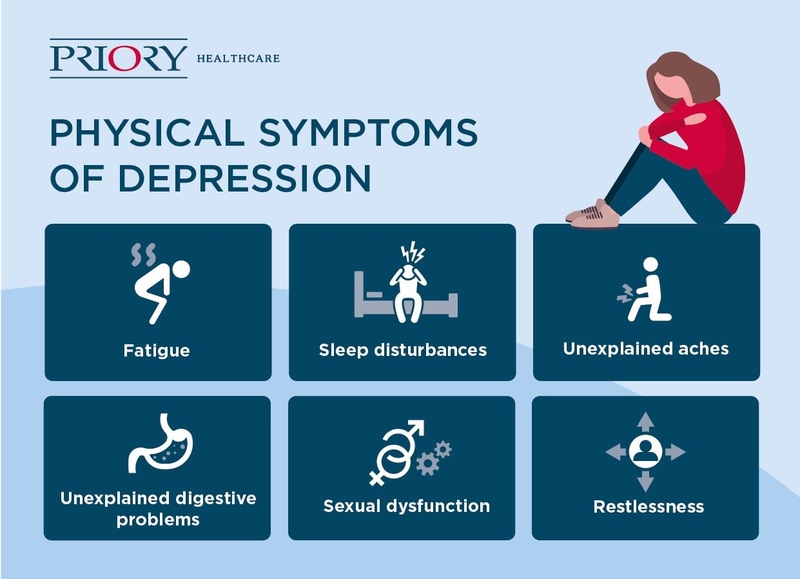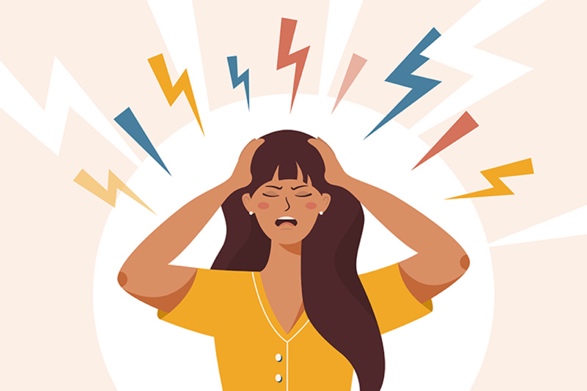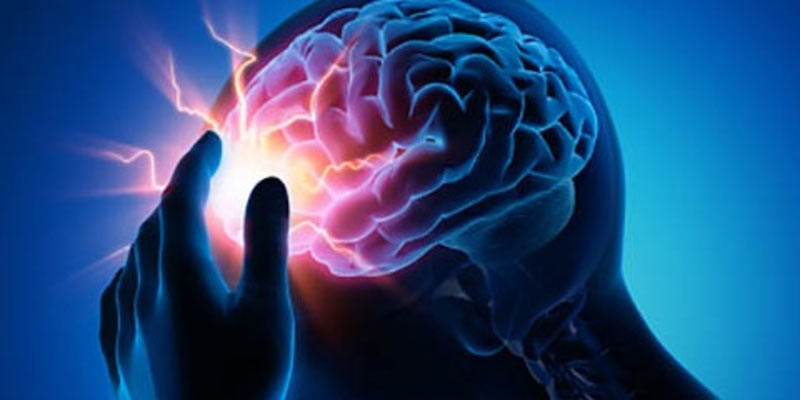Experiencing the challenges of living with depression or witnessing its effects on a loved one requires an understanding of this mental health condition's symptoms and diagnostic process. This article navigates through the complex aspects of depression, illuminating both potential signs indicating its presence and procedures for identifying it to aid in management.
Depression Symptoms - The Telltale Signs
There are various ways that depression emotionally and physically affects individuals. The first step towards seeking help and initiating the journey to recovery involves recognizing these symptoms.
Emotional Symptoms:
The emotional toll of depression manifests profoundly and multifacetedly. A hallmark emotional symptom is an unrelenting, overwhelming sadness often disassociated from life circumstances that persist persistently. Those individuals who wrestle with this condition might become ensnared in a relentless cycle of negative thoughts. It’s a phenomenon that will invariably impact their overall mood as well as their emotional well-being.
Depression further characterizes its emotional landscape through irritability, a heightened sensitivity to stressors, and an inexplicable sense of hopelessness.
Look beyond the obvious emotional changes, and strive to discern the subtleties that may surface. Individuals experiencing emotional numbness, a state in which they might battle to experience joy or excitement, could equally be demonstrating depression. The complex interplay of these emotional symptoms can engender an all-encompassing sense of despair, thereby isolating people from potentially crucial support.
Not only must we acknowledge the presence of these emotional indicators, but also grasp their profound impact on daily life. The persistent burden emotionally can hinder relationships and work performance, thereby diminishing overall quality of life. Hence, early intervention becomes crucial to break this cycle and foster a path towards emotional healing.
Physical Symptoms:
Beyond the emotional realm, depression physically manifests and disrupts the body's equilibrium. A common physical manifestation includes changes in appetite. Some individuals experience a noticeable increase, often seeking comfort through food. Others may altogether lose interest in eating. Weight fluctuations can result from these variations, thereby introducing an extra layer of complexity into the individual's experience.

Another prevalent physical symptom exists as sleep disturbances. Insomnia is characterized by difficulty in falling or staying asleep, and conversely, hypersomnia where one excessively sleeps, can disrupt the natural sleep-wake cycle. This disruption leads to fatigue. It also intensifies the challenges of daily life and further contributes to a sense of both mental and physical exhaustion.
Frequent physical symptoms of depression manifest as unexplained aches and pains, often defying conventional medical explanations. This underscores the mind-body connection in depression and highlights the cruciality of addressing both its emotional and physical facets. Not only does recognizing these physical manifestations enhance diagnosis accuracy, but it also underscores an imperative need for holistic treatment.
Cognitive Symptoms:
The complexity of depression transcends emotional and physical realms, highlighting its pervasive impact on cognitive functions. Commonly observed as concentration difficulties, this condition poses a significant challenge for individuals to focus on tasks or maintain coherent conversations. Even completing work assignments can become an uphill battle. Such cognitive fog profoundly disrupts daily functioning, thereby intensifying the individual's frustration throughout their experience.
Under the influence of depression, decision-making morphs into a laborious process. Even choices that seem straightforward may incite overwhelming feelings. Thus, contributing to one's sense of helplessness and indecision. This aspect of cognitive impairment not only isolates individuals. It also hampers their ability to navigate life's challenges with confidence.
Prevalent cognitive symptoms also include difficulties in memory, such as forgetfulness and an inability to retain information. These challenges may affect numerous aspects of life. From the recollection of crucial dates to learning, and subsequently retaining new data. A comprehensive understanding of depression necessitates recognition and comprehension of these cognitive indicators, addressing them is integral not only for effective treatment but also for a successful recovery.
Diagnosis of Depression - Navigating the Assessment Process
Accurate diagnosis proves pivotal for effective depression management.
Diagnostic Criteria:
Healthcare professionals, emphasizing the duration and severity of symptoms, rely on specific criteria to diagnose depression. Understanding this, that a consistent pattern of symptoms over time is crucial, prompts individuals to grasp promptly the importance of seeking professional assessment.
Clinical Assessments:
Diverse assessments, from structured interviews to standardized questionnaires, are employed by clinicians. These tools enable them to gather comprehensive information about an individual's mental state. This detailed evaluation is a critical step in the process. This not only aids in forming a nuanced understanding of the patient's unique experience but also lays down precise foundations for diagnosis: it is where accuracy begins.
Medical and Laboratory Tests:
Primarily impacting mental health, depression can present symptoms similar to certain physical conditions. The significance of medical and laboratory tests in diagnosing this condition cannot be understated. Understanding these tests imparts insight into the diagnostic journey's thoroughness, thereby fostering confidence in the final diagnosis' accuracy.
Recognizing Depression Signs - A Guide for Individuals and Caregivers
Fostering a proactive approach to mental health requires empowering individuals and caregivers with the knowledge, specifically, recognizing early signs of depression. This recognition is an essential step in addressing and managing one's well-being.
Behavioral Signs
Behavioral changes such as social withdrawal, increased irritability, or a decline in personal hygiene can signal an underlying mental health concern. Recognizing these behavioral indicators is vital for timely intervention.

Interpersonal Relationships and Communication
Friends and family can provide better support by understanding how depression often impairs communication and interpersonal relationships. This understanding equips them to recognize the manifestations of depression in these areas.
Impact on Daily Functioning
To gain a comprehensive understanding of the extensive effects of depression, one must actively explore its impact on daily activities, work, school, or household responsibilities.
Conclusion – Taking proactive action
To foster an informed and supportive society towards mental health, we must actively unravel the complexities of diagnosing depression symptoms, this is essential. By understanding its diagnostic process, and recognizing its signs ourselves or as caregivers, we can proactively manage depression to promote overall well-being. It's a critical step on our path toward recovery.
Always remember, that seeking professional help is not just important but necessary for progress in your journey back to wellness.






